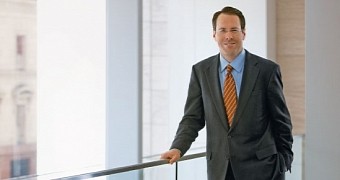Apple has been one of the most vocal companies against the proposed backdoor that would allow the US government to break into any device sold in the country should enforcement agencies need it, but not everyone agrees with this position.
AT&T Chief Executive Officer Randall Stephenson has told WSJ in an interview that Apple, Microsoft, Google, and the other companies that opposed the backdoor should stay away from this debate, explaining that the Congress should be the one to decide.
“I don’t think it is Silicon Valley’s decision to make about whether encryption is the right thing to do. I understand Tim Cook’s decision, but I don’t think it’s his decision to make. I personally think that this is an issue that should be decided by the American people and Congress, not by companies,” he says.
The NSA scandal
Stephenson’s position, however, doesn’t come as a big surprise to many. AT&T has previously been accused of working together with the United States National Security Agency and providing information of certain customers. But in the interview, the company’s CEO explains that there’s no such thing as a collaboration with the NSA and points out that AT&T only complied with legal requirements.
“It is silliness to say there’s some kind of conspiracy between the US government and AT&T,” he continues.
Apple’s CEO Tim Cook previously stressed that installing a backdoor on encrypted devices is a very risky measure because it’s practically impossible to give control only to law enforcement agencies and prevent hackers from exploiting them too.
“There have been people that suggest that we should have a back door. But the reality is if you put a back door in, that back door's for everybody, for good guys and bad guys,” Cook noted.
Furthermore, Cook has recently met with White House officials and opposed the same proposal, before being countered by Attorney General Loretta Lynch, who has explained that there must be a balance between privacy and national security.

 14 DAY TRIAL //
14 DAY TRIAL //